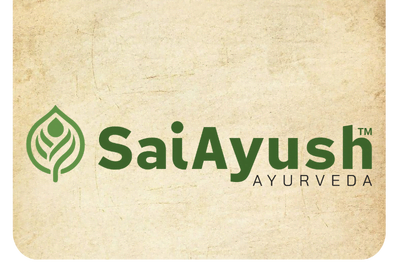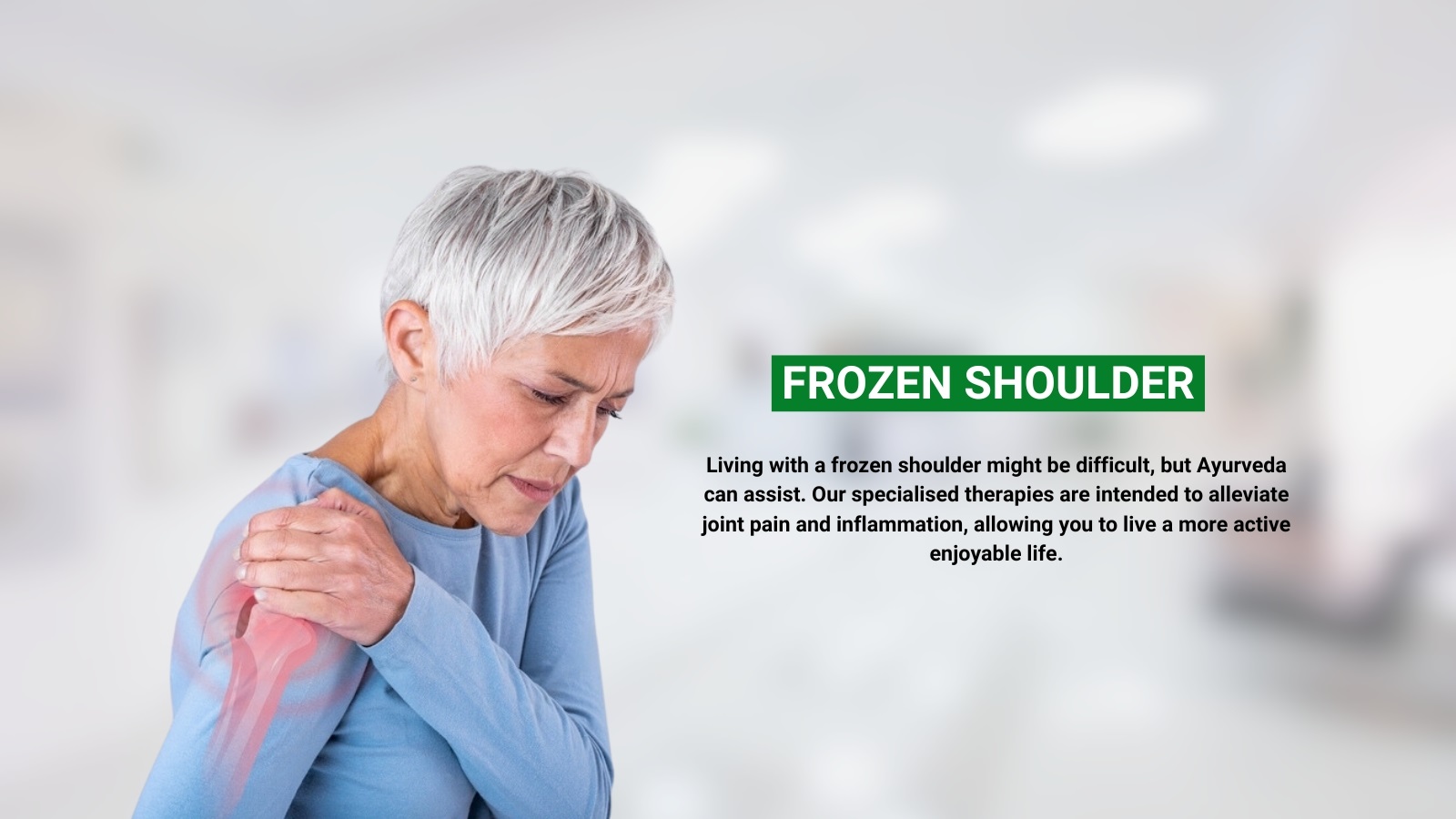Frozen shoulder is a disorder in which the shoulder stiffens and unrestricted mobility of the joint becomes difficult, if not impossible. It is also known as adhesive capsulitis of the shoulder joint. It can arise as a result of an accident, overuse, or disease such as diabetes or stroke. The tissue around the joint stiffens, causing scar tissue to form and making mobility difficult and painful. It appears and then gradually fades away over the course of about a year. The occurrence of pain is not age dependent; nonetheless, the younger generation is more likely to suffer from such discomfort. It is only temporary in a few cases and lasts only a few months. In Ayurveda, frozen shoulder is associated to Apabahuka, which commonly affects the shoulder joint due to Vata dosha vitiation. According to Ayurveda, shoulder wasting is the first stage of the ailment, and the stiffness that arises is the result of Kapha dosha. Many patients have chilly exposure at night as a result of Kapha dosha involvement, and their stiffness worsens.
Frozen Shoulder CAUSES
In the shoulder joint, the bones, ligaments, and tendons are protected by a connective tissue capsule. When this capsule thickens and tightens, it causes the condition known as frozen shoulder. This thickening and tightness can be caused by an accident, misuse of the joints in drivers and weight lifters, or degenerative illnesses such as rheumatoid arthritis, cervical spondylosis, or neck disc displacement. This thickening and stiffness causes scar tissue to form around the joints, resulting in limited mobility and discomfort while moving. Injury to key parts, excessive exposure to wind, A.C., sleeping in the improper position, vata aggravating diet and activities, and an excess of pungent, bitter, and astringent foods can all contribute to frozen shoulder.
Frozen Shoulder STAGES
Frozen shoulders often occur in three phases and can linger for several months. Freezing stage: During this stage, shoulder motions produce discomfort and the capacity to move the shoulder decreases. Frozen stage: pain may lessen but stiffness worsens. The thawing stage At this point, the range of motion begins to improve. Factors of Risk Women over the age of 40 are particularly vulnerable. Prolonged immobility and restricted mobility due to rotator cuff injury, broken arm, stroke, or following surgery increase the risk of frozen shoulder. Diabetes, hyperthyroidism, hypothyroidism, heart disease, tuberculosis, and other diseases may also be related to it.
FROZEN SHOULDER AYURVEDIC TREATMENT
Oil massage, oleation, Pizhichil (streaming of hot oil), herbal leaf poultice, rice poultice, herbal powder poultice, and cotton swabs soaked in hot medicinal oil applied to the afflicted joint are some of the therapies used by Sai Ayush Ayurveda to ease joint pain and stiffness. Herbal nasal drops, medicated enema, and several oral drugs have also been proven to be beneficial. Though frozen shoulder is not a life-threatening sickness, it makes it difficult to do daily tasks because the hand and shoulder are involved in practically all of them. As a result, attention, frequent therapy, and exercise play an important role in management. Changes in diet and lifestyle, as well as home remedies Ayur Healthcare will give you with the appropriate custom-tailored food and lifestyle suggestions to follow. Warm and unctuous diet, regular exercise, a warm water bath, and the use of anti-inflammatory spices such as turmeric and black pepper are all recommended. Cold water baths, excessive use of air conditioning, excessive consumption of oil and fried foods, strenuous exercise, and incorrect lying, sitting, and sleeping positions, among other things, should be avoided.
Discover the healing power of Ayurveda with our latest article at Sai Ayush Ayurveda Hospitals! Dive into the age-old wisdom that can rejuvenate your body and mind. Click here to read more:



0 Comments